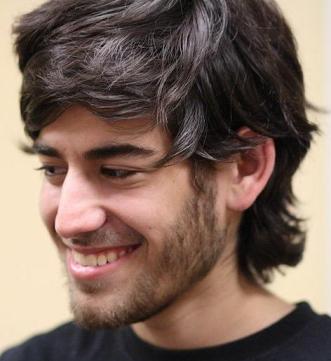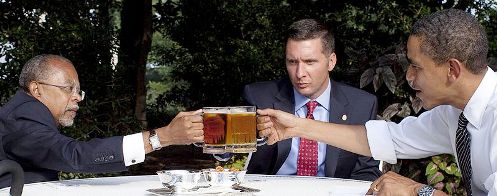Barack Obama and the Death of Computer Genius Aaron Swartz

After Henry Louis Gates, Jr., an African-American Harvard professor, was erroneously arrested for breaking and entering, Barack Obama spoke up.
The President at first overdid his criticism of the Cambridge police, but in the end acted laudably as a peacemaker, inviting both Prof. Gates and the arresting policeman to the White House for a “Beer Summit.”
Now the White House should help make peace in a separate Cambridge case and hold another Beer Summit, in fact a whole series--between copyright lobbyists and America’s librarians, educators and consumer activists. Dead in the copyright wars is Aaron H. Swartz, the 26-year-old computer genius and information-access activist who hanged himself in Brooklyn. He was facing a possible prison term of up to 35 years and a possible $1-million fine for alleged computer-related offenses at the Massachusetts Institute of Technology in Cambridge.

Beyond the Copyright Beer Summits, here’s how President Obama should respond to the Swartz tragedy--far more outrageous than the specific indignities that Prof. Gates so unfortunately suffered at the personal level:
1. Offer a heartfelt apology to Swartz’s parents, who accurately described the suicide as “the product of a criminal justice system rife with intimidation and prosecutorial overreach. Decisions made by officials in the U.S. Attorney’s office and at MIT contributed to his death.” Whether or not Swartz was guilty under current law, his intentions were pure. The Obama Justice Department should never have treated him as if he were Aaron Soprano. Alas, Swartz is not the first bullied hacker to die a suicide, and the name of Stephen Heymann, an assistant U.S. attorney for the district of Massachusetts, has come up in both this case and an earlier tragedy.
2. Work toward the mitigation of extreme copyright laws, including the Sonny Bono Copyright Term Extension Act, which, in some cases, gave us copyright terms of up to 120 years. Talk about the encouragement of battles between copyright holders and other citizens! Without massive campaign donations over the decades from the copyright industry to members of both major parties, would terms be as long? As a writer, I’m gung-ho on copyright. But let’s not overdo.
3. Formally propose two well-stocked national digital library systems, one serving public library-related needs and the other fulfilling different academic needs even though the two systems would be tightly intertwined and both universally accessible. The more information is legally free, the fewer confrontations and Swartz-style tragedies we’ll see. What’s more, I’ve told in detail how copyright holders could actually earn more through a greater reliance on the library business model. Fodder for the 2013 State of the Union address?
Ironically, Congressional staffers have illegally downloaded copyrighted books and movies--while congress members were drafting the mercifully killed “Stop Online Piracy Act.” These violations go on. Will the Obama Justice Department investigate and throw the book at Hill staffers, and maybe even their bosses, with the same zeal it showed toward the prosecution of Swartz? Hardly. But the White House and politicians on both sides of the aisle can work toward library-friendly business models that will smarten up the country, promote social mobility and at least somewhat reduce the temptation to violate the law. William F. Buckley Jr. was a big supporter of the national digital library concept, writing two “On the Right” columns for it. Can’t President Obama get more serious about this education-and-jobs issue in disguise?
Meanwhile the President should read comments from MIT President L. Rafael Reif, who, besides offering his sympathies to the Swartz family, wants the university to reexamine its legal actions. As both an Obama supporter in 2008 and 2012 and a member of the U.S. technology community, I hope that the President can show as much open-mindedness.
An earlier and longer version of this column is on the LibraryCity.org site.





